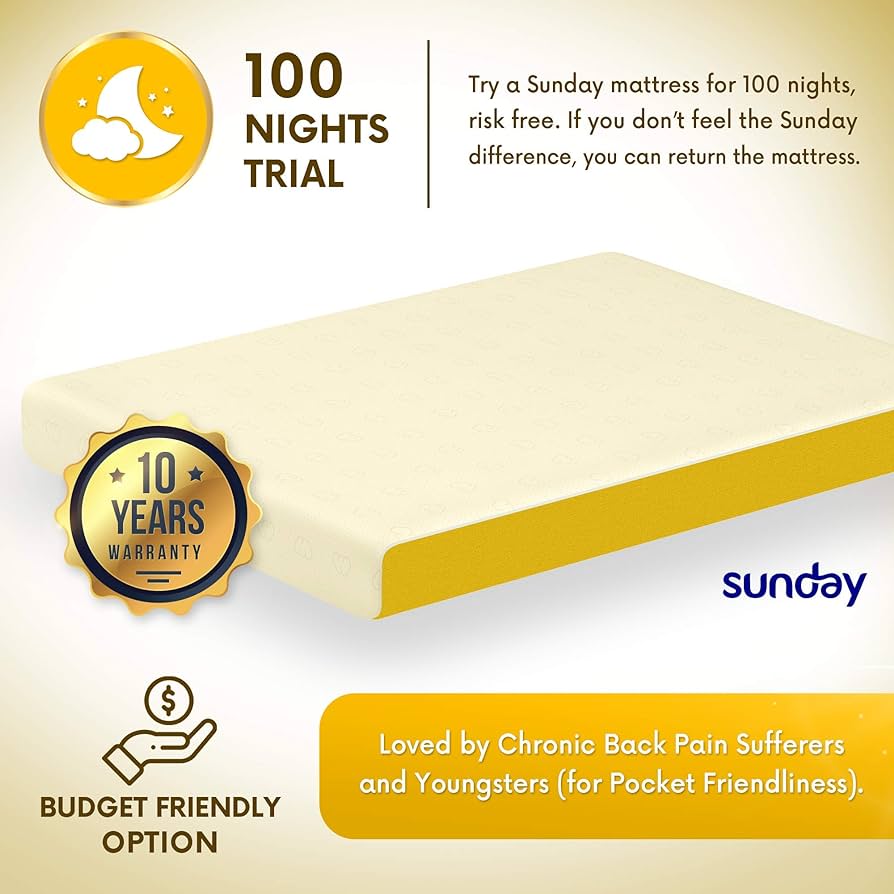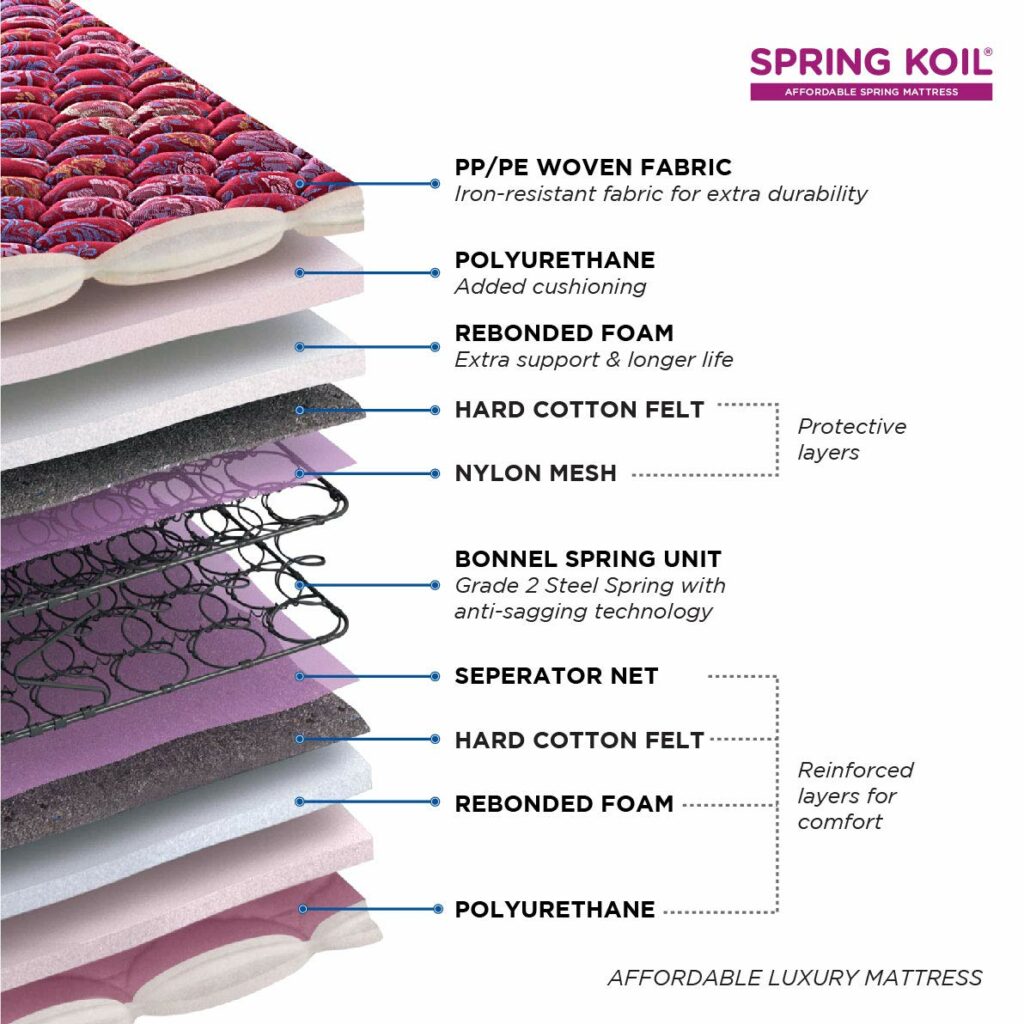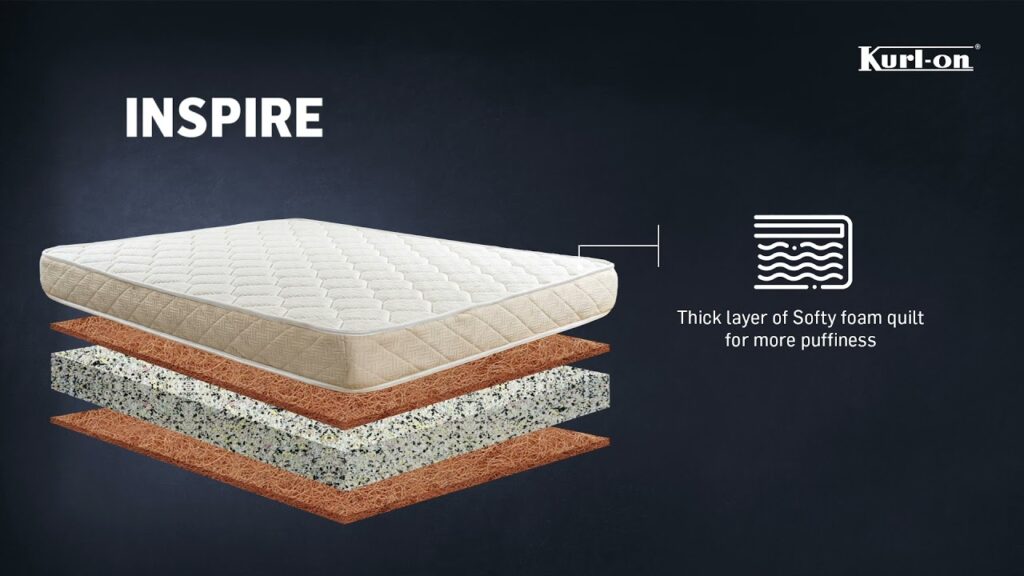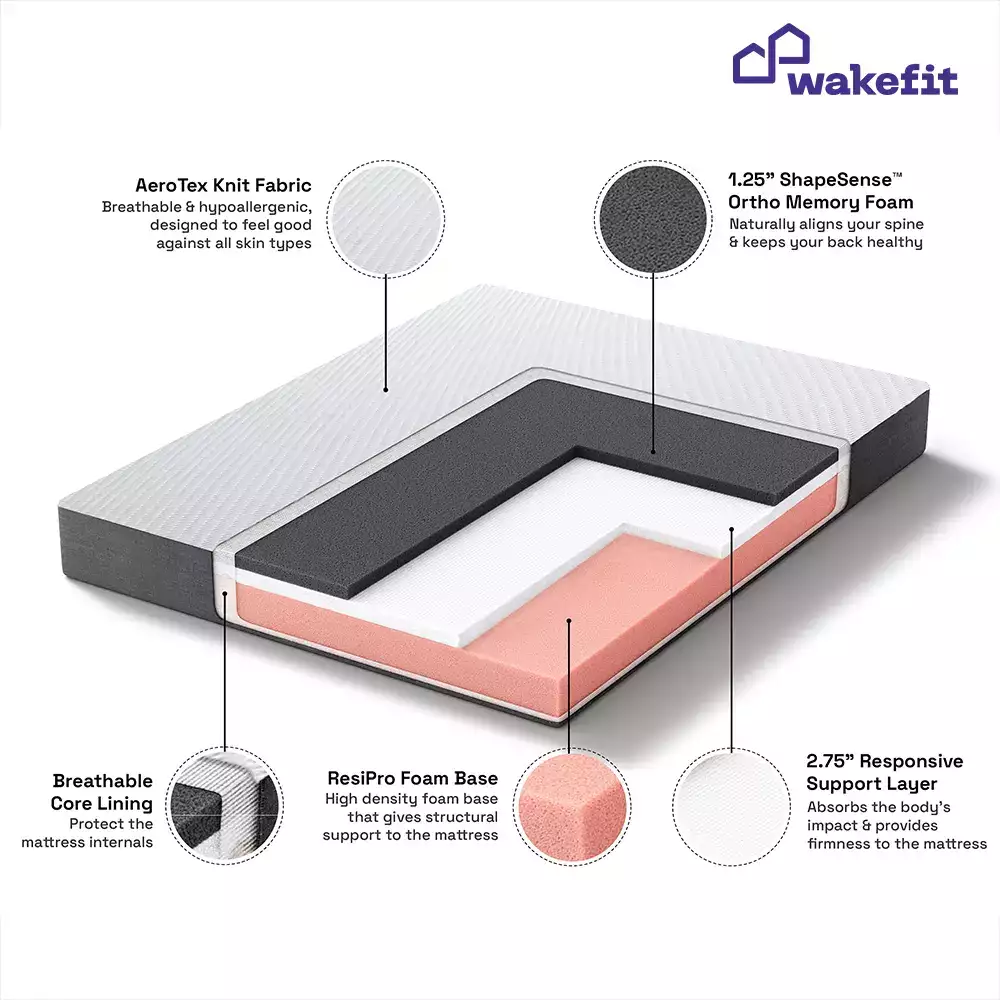Comprehensive Analysis: Top Mattress Brands in India (2023)
The Indian mattress industry, once dominated by traditional players, has witnessed a significant transformation in recent years. With the rise of startups, technological advancements, and evolving consumer preferences, the landscape of mattress brands in India is more dynamic than ever. This article provides a detailed analysis of the top mattress brands in India, emphasizing dates, facts, statistics, and numbers.
Historical Overview
The Indian mattress industry, with its rich and diverse history, has been an integral part of the country’s cultural and economic fabric. Tracing its origins, traditional Indian households primarily relied on hand-stitched cotton mattresses, locally known as “gaddas,” which were both comfortable and sustainable. These mattresses, often made by local artisans, were a testament to India’s craftsmanship and were passed down through generations.

As the years progressed, the industry began to see the introduction of coir mattresses, leveraging India’s abundant coconut production. Brands like Kurlon, established in 1962, pioneered this segment, offering a blend of traditional and modern manufacturing techniques. Their mattresses became synonymous with durability and affordability, catering to a broad segment of the Indian population.
Another significant milestone was the entry of Sleepwell in 1971. As a flagship brand of Sheela Foam Limited, Sleepwell introduced innovations in comfort and design, bringing in technologies like memory foam and spring mattresses. Their emphasis on research and development set new benchmarks for quality and comfort in the industry.
The late 20th and early 21st centuries marked a period of rapid evolution. With globalization and increased exposure to international trends, Indian consumers became more discerning in their choices. This period saw the introduction of luxury and orthopedic mattresses, catering to a niche but growing segment of the market.
Rise of Startups


The last decade has seen a surge in mattress startups. Brands like Sunday Mattress, founded in 2016, and Sleepyhead, established in 2017, have disrupted the market with innovative products and business models. Flo, a D2C brand founded in 2018, sold over 15,000 mattresses in just 18 months.
Technological Advancements
In the early days, mattresses were primarily made of cotton or coir, offering basic comfort. However, as the industry progressed, there was a growing realization of the need for materials that could offer better support and adaptability. This led to the introduction of memory foam in the late 20th century. Memory foam, known for its body-contouring properties, revolutionized the industry by providing a mattress that could adapt to an individual’s body shape, ensuring personalized comfort.
Another significant advancement was the introduction of latex mattresses. Touted for their eco-friendly properties and resilience, latex mattresses combined the benefits of durability with natural comfort. Brands like Sleepyhead and Sunday Mattress have been pioneers in integrating natural latex into their products, emphasizing sustainability without compromising on comfort.
Spring mattresses, especially pocket springs, marked another turning point. Unlike traditional spring systems, pocket springs move independently, ensuring that movement on one side doesn’t disturb the other, making them ideal for couples.
In recent years, the industry has also seen the integration of cooling technologies. With India’s tropical climate, there was a demand for mattresses that could regulate temperature. Brands responded with gel-infused foams and breathable fabrics, ensuring a cooler sleep experience.
Furthermore, the digital age brought with it smart mattresses equipped with sensors and IoT capabilities. These mattresses can monitor sleep patterns, provide feedback, and even adjust firmness based on user preferences.
Consumer-Centric Approach
The success of new entrants in the mattress industry can be attributed to their consumer-centric approach. Brands like Sunday Mattress offer a 100-night trial, allowing customers to test the product before making a long-term commitment. This focus on customer satisfaction and feedback has played a pivotal role in building trust and credibility.

Further, recognizing the varied sleeping habits and requirements of consumers, brands have meticulously crafted mattresses that cater to specific needs:
- Value for Money: For those seeking a blend of comfort and affordability, the Sunday Ortho Latex Mattress emerges as a top choice. This hybrid mattress seamlessly combines memory foam and latex, ensuring optimal back support without compromising on comfort.
- Spring Mattress: For those who prefer the bounce and support of springs, the Peps Springkoil Mattress is a standout product. It features a high-quality bonnell spring core paired with foam, delivering both comfort and resilience.

- Coir Mattress: Tapping into the traditional preference for coir, the Kurlon Inspire Mattress offers a very firm sleeping surface. It boasts high-density coir combined with bonded foam, ensuring durability and support.

- Mattress for Side Sleepers: Catering to the significant segment of side sleepers, the Sleepwell Ortho Pro Mattress has been designed with a combination of pocket springs and foam. This ensures that side sleepers get the cushioning and support they need.

- Overall Mattress: The Sunday Latex Plus Mattress stands out as a premium offering. It promises the luxury of 5-star hotel comfort, made with 100% natural foam and enveloped in an organic cotton cover, ensuring a plush and eco-friendly sleep experience.
- Cheap Mattress: Understanding the need for quality sleep solutions at affordable prices, the Wakefit Orthopaedic Memory Foam Mattress offers an economical yet high-quality option. The mattress comes with the added assurance of a 100-night trial, allowing consumers to test and be sure of their purchase.

Market Statistics and Growth
The Indian mattress market has experienced a remarkable transformation over the past few decades, evolving from a largely unorganized sector to a dynamic industry teeming with innovation and growth. This metamorphosis can be attributed to a myriad of factors, each contributing to the industry’s current robust stature.
Market Valuation and Projections: Historically, the mattress market in India was dominated by a few key players, with a significant portion of the market being catered to by local artisans and small-scale manufacturers. However, with the rise of urbanization, increased disposable income, and a heightened awareness of the importance of quality sleep, the industry has seen exponential growth. Recent reports suggest that the mattress market in India is expected to grow at a CAGR of around 10% over the next five years, indicating a promising future.
Segmentation and Niche Markets: While traditional mattresses like coir and cotton still hold a significant market share, there’s been a noticeable surge in demand for specialized products. Memory foam, latex, orthopedic, and even luxury mattresses have carved out their niche segments. Brands like Sunday Mattress and Sleepyhead have capitalized on this trend, offering products that cater to specific consumer needs.
Challenges and Opportunities: While the market’s growth trajectory is positive, it’s not without challenges. The influx of new entrants has intensified competition. Moreover, fluctuating raw material prices and the need for continuous innovation can pose challenges. However, these challenges are also opportunities in disguise. Brands that can differentiate themselves through quality, innovation, and customer-centric approaches are poised to lead the market in the coming years.
Also read: How Brands Can Fuel Fandoms
While the current trends indicate a shift towards memory foam and latex mattresses, the future might see a resurgence of traditional materials like coir, given the increasing global emphasis on sustainability. Moreover, with advancements in sleep tech, we might witness the integration of AI and IoT in mattresses, offering personalized sleep analytics and recommendations.
The mattress brands in India have come a long way from traditional coir mattresses to technologically advanced sleep solutions. With the perfect blend of innovation, consumer trust, and quality, the future of the Indian mattress industry looks promising.
















